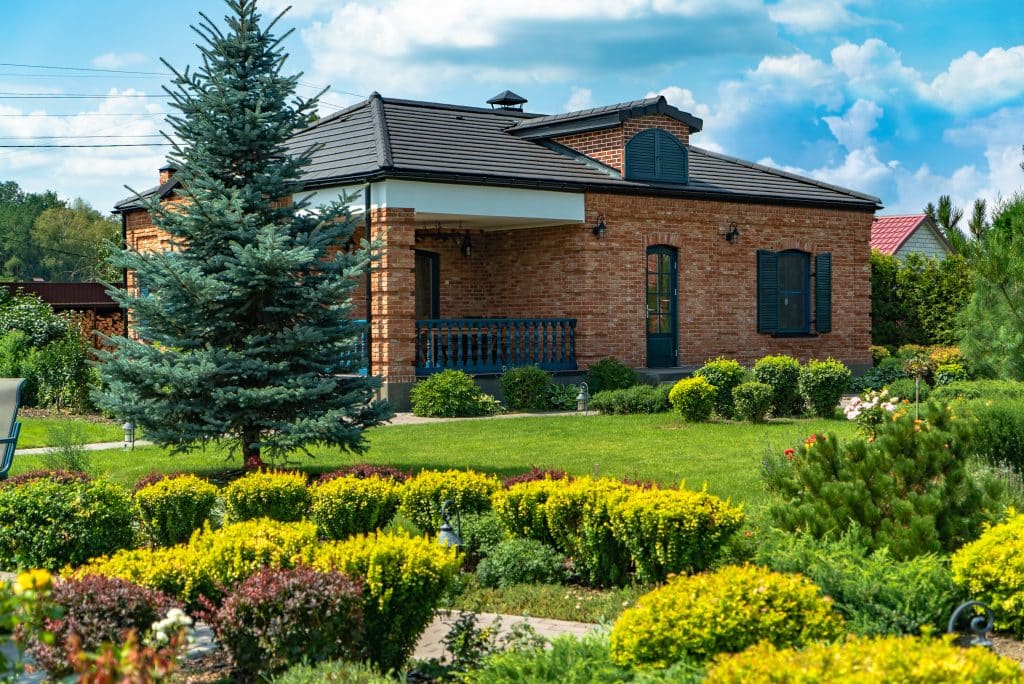Can Fertilizer Help Fight Lawn Weeds in Fort Worth? Yes and Here’s How
When weeds start taking over your yard, tossing on fertilizer might feel like throwing fuel on a fire. But used the right way, nutrient timing, product choice, and turf health strategy, fertilizer can actually tip the scales in favor of grass over weeds.

1. Fertilizer Helps Grass Outcompete Weeds
Weeds thrive in bare or thin grass where they have free access to sunlight and nutrients. A properly fertilized lawn encourages grass to grow thick and strong, which naturally crowds out weeds. Grass planted densely shades the soil, preventing weed seeds from sprouting and establishing. Mow & Grow applies balanced fertilizers, nitrogen, phosphorus, and potassium (N‑P‑K), to feed your turf without over-stimulating weed growth. Healthy grass is the first defense against weeds.
External research confirms this: one study found that balanced fertilizer reduced weed growth by up to 30–40% compared to unfed plots.
2. Nutrient Balance Matters, Phosphorus and Potassium Help More Than You Think
Not all nutrients are created equal. Excess nitrogen can feed both grass and weeds, especially early post-fertilizing, when weeds bounce back quickly.
Phosphorus strengthens roots and potassium boosts overall turf health. Weeds generally have shallower roots and weaker structure; strong root systems help turf resist weed invasions. High phosphorus fertilizers can tighten that barrier. Research also supports potassium’s role in disease resistance, adding stress resilience to your lawn, making weeds less likely to take hold.
3. The Role of Pre-Emergent Fertilizer Products
Some products combine nutrients and weed prevention agents. These “weed-and-feed” blends apply pre-emergent herbicides, chemicals that stop seeds from germinating, along with nutrient support. Applied at the right time, usually early spring, they halt weeds like crabgrass before they sprout.
Mow & Grow schedules these treatments strategically for the Fort Worth area, early spring and early fall, to block new weeds while promoting grass growth. Timely applications are key: too early and the herbicide may degrade before weed seeds appear; too late and weeds may already be in place.
4. When You Fertilize Makes All the Difference
Timing matters. Fertilizing at the wrong time, like during summer stress or drought, can feed weeds more than grass. Fort Worth’s warm-season grasses like Bermuda, St. Augustine, and Zoysia do best when fed in early spring, early summer, and again in early fall. Mid-summer nitrogen boosts can power weed growth, especially in weaker grass.
A soil test helps determine nutrient needs, reducing unnecessary fertilization that weeds might exploit. Professionals can tailor products to your lawn’s exact pH, nitrogen, or phosphorus needs.
5. Combining Fertilizer with Smart Lawn Maintenance
A fertilizer application is most effective when matched with good mowing and watering habits. Regular mowing keeps grass at the right height (usually about 3 inches), helping weeds stay small and weak. Cutting too short (also known as scalping) stresses turf and gives weeds room to grow. Mulching clippings can recycle nitrogen back to grass, not weeds, if done right.
Deep, infrequent watering encourages deeper grass roots and deprives shallow weeds of surface moisture. Using fertilizer in tandem with these practices makes grass competitive and weeds less likely to thrive.
Real-Life Results in Fort Worth Lawns
Homeowners often think that fat grass is all that matters after fertilizing, but the real proof is density. Thicker lawns can reduce weed populations by up to 50% simply by denying light and space. In local Fort Worth yards, consistent balanced fertilization plus proper mowing has made the difference between lawns dominated by clover, dandelions, and crabgrass, and lawns that discourage weeds simply by staying healthy.
How Mow & Grow Uses Fertilizer to Fight Weeds
- We conduct soil tests before recommending fertilizer types or weed-and-feed combinations.
- We schedule applications aligned with Fort Worth’s growing season.
- We pair fertilization with pre-emergent treatments for targeted weed prevention.
- We include professional mowing and trimming to complement nutrient applications.
- We follow up on problem patches with soil or grass amendments where weeds persist.
Fertilizer helps weaken weed competitors by strengthening turf, but it doesn’t kill weeds outright. Used as part of a deliberate, balanced lawn care plan, it’s a powerful ally in creating a lush, weed-resistant lawn.
Want a lawn that’s thick, green, and weed-resistant? Mow & Grow in Fort Worth can help. Call us at (817) 717-2686 to schedule expert fertilization and weed control today.
